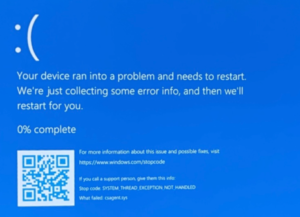Breaking Boundaries: UPI Goes Global – India’s Financial Revolution
In a groundbreaking move, India’s Unified Payments Interface (UPI) has transcended borders and is set to revolutionize international payments. The announcement of an important partnership between India and France during Indian Prime Minister Modi’s visit to celebrate Bastille Day brings exciting prospects for India payment system. Finally, UPI goes global giving competition to the age old US system.
What is UPI?
Unified Payments Interface (UPI) is a real-time payment system developed by the National Payments Corporation of India (NPCI). It is a revolutionary digital platform that facilitates instant money transfers and allows users to make payments and receive funds directly from their bank accounts using a mobile phone. UPI operates on the basis of the Immediate Payment Service (IMPS) infrastructure and enables seamless transactions between different banks. It has gained immense popularity in India due to its ease of use, security, and fast processing times. UPI has transformed the way people handle their finances and has become a key component of India’s digital payment ecosystem.
1: UPI Goes Global
With the aim of establishing UPI on the international stage, the National Payments Corporation of India (NPCI) took a proactive step by partnering with France’s Lyra Network in June 2022. This significant development is now making it possible for Indian tourists visiting France to make payments at renowned attractions like the Eiffel Tower using UPI. After france, it will be the integration of UPI with the rest of Europe.
2: UPI’s Impact on International Travel
Traditionally, Indian tourists traveling abroad had limited payment options, each with its drawbacks. Converting Indian rupees to foreign currency involved unfavorable conversion rates, while Forex cards required pre-loading and incurred extra fees. International debit or credit cards by either VISA or Mastercard also came with high conversion rates and additional charges. However, UPI’s entry into the global market promises to eliminate these hassles and provide a seamless payment experience for Indian travelers. The Indian middle income earners are now travelling overseas more often compared to others.
3: UPI’s International Demand
As India assumes the role of the G20 President in 2023, it has presented an excellent opportunity to showcase UPI’s capabilities to international leaders and dignitaries. This live demonstration has led to UPI’s integration with payment systems in various countries like:
- Russia’s Faster Payment System (FPS)
- Thailand’s PromptPay service
- Singapore’s PayNow
- The UAE’s Network International and Mashreq Bank.
The Singapore partnership holds particular significance, as atleast 10% of Singapore residents are Indian-origin, and remittances between Singapore and India for FY 2021/2022 were nearly USD 89 Billion (132 Billion AUD). This is projected to cross USD 100 Billion in 2023. The collaboration opens the doors for seamless transactions for Indian origin people in Singapore, payment for Indian products by Singaporean buyers, and vice versa. Additionally, it facilitates foreign direct investments between the two countries. The Singapore government was the first to integrate with India’s UPI in 2021.
4: India’s Banking Superpower Ascent
India’s financial technology (FinTech) sector ranks among the world’s top three and is projected to surpass the $1-trillion mark by 2030, in tandem with India’s growth into a $10-trillion economy (projected). UPI plays a pivotal role in this progress, offering a digital public infrastructure (DPI) that empowers Indians with banking accessibility and ensures seamless international transactions without dependency on the US dollar.
By integrating the UPI system as a global system, India aims to challenge the dollar-dominated international payment system and reduce excessive fees charged by global card companies (VISA, Mastercard). As more countries integrate with UPI, its application will expand, facilitating remittances and foreign investments in rupees and other currencies.
5: A Financial Revolution Ahead
The collaboration with France on Bastille Day marks the beginning of a financial revolution. UPI’s international success will not only benefit India but also revolutionize the way global payments are conducted.
As India’s influence and success grow, it is essential to share these developments widely and celebrate the nation’s achievements. The impact of UPI’s global expansion goes beyond medical tourism, yoga, meditation, medicine manufacturer of the world and iconic landmarks; it transforms India into a financial superpower on the world stage.
Recently on 01 July 2023, NPCI celebrated the milestone of 9 billion online transactions in a month over UPI. UPI accounts for 46% of the global online transactions, it is a record in itself.
The UPI revolution has changed India, and its promise of an interconnected and financially empowered world is worth sharing. As we await further details on the international rollout, let’s celebrate the nation’s progress and the potential for a fairer and more efficient global financial system. Looking forward to UPI’s integration in the Australian financial system.
Conclusion
India’s foray into international markets with UPI heralds a new era of financial empowerment and seamless cross-border transactions. With partnerships across various countries, UPI is poised to challenge the dominance of the dollar and usher in a financial revolution.
As the world embraces the power of UPI, India’s influence on the global stage will rise exponentially, positioning it as a banking superpower. It is crucial to share this momentous achievement and spread awareness of UPI’s transformative potential. The UPI journey has just begun, and with each step, India marches forward toward a brighter and more connected future.



